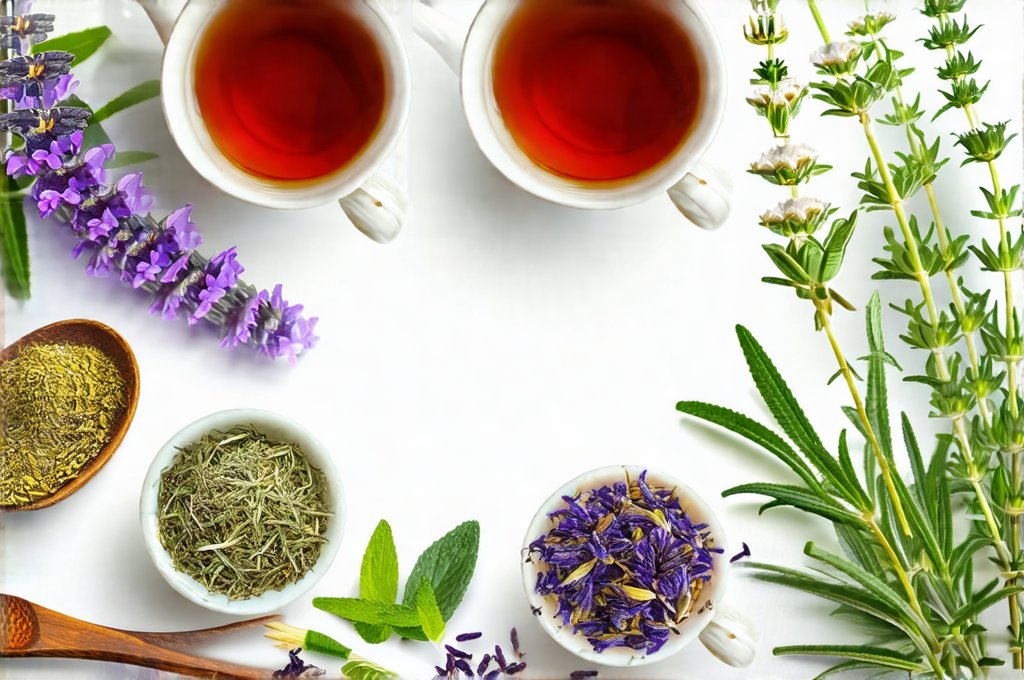Acid reflux, also known as heartburn, is a common digestive issue affecting millions worldwide. It occurs when stomach acid flows back up into the esophagus, causing a burning sensation in the chest, regurgitation, and sometimes even difficulty swallowing. While conventional medications can offer relief, many individuals are seeking natural alternatives to manage their symptoms, exploring options that may be gentler on the body and promote overall well-being. Herbal teas have long been utilized for their medicinal properties, offering a soothing and potentially helpful approach to easing acid reflux discomfort.
The appeal of herbal teas lies not only in their potential therapeutic benefits but also in the comforting ritual they provide. A warm cup of tea can be inherently relaxing, reducing stress which is often a contributing factor to digestive issues. It’s important to remember that herbal teas are not a cure for acid reflux, and individual responses will vary. This article aims to explore some of the most promising herbal teas traditionally used to soothe acid reflux symptoms naturally, focusing on their properties and potential benefits while emphasizing the importance of consulting with a healthcare professional before incorporating them into your routine. We’ll delve into how these teas might offer support alongside lifestyle adjustments and medical advice when needed.
Soothing Herbal Teas for Digestive Comfort
Several herbal teas have gained recognition for their ability to potentially alleviate acid reflux symptoms, primarily through mechanisms like calming the digestive tract, reducing inflammation, or neutralizing stomach acid. Chamomile tea is perhaps the most well-known, celebrated for its gentle and relaxing properties. It’s believed that chamomile helps to calm the muscles in the digestive system, which can reduce spasms and discomfort associated with acid reflux. Peppermint tea, while sometimes controversial (more on that later), has also been used traditionally to soothe indigestion and relax the esophageal sphincter, potentially preventing acid backflow. Ginger tea is another popular choice, known for its anti-inflammatory properties and ability to aid digestion, although caution must be exercised as it can exacerbate symptoms in some individuals. Considering identifying trigger foods for acid reflux can also help manage your condition.
The efficacy of these teas isn’t always definitively proven through large-scale scientific studies; much of the evidence is anecdotal or based on traditional use. However, the underlying principles behind their potential benefits are rooted in established herbal medicine practices and increasingly supported by emerging research. It’s crucial to choose high-quality herbal teas from reputable sources to ensure purity and potency. Organic options are generally preferred to minimize exposure to pesticides and other potentially harmful substances. Furthermore, understanding how each tea interacts with your body is vital – what works for one person might not work for another. You may also find herbal remedies for acid reflux helpful in addition to teas.
Finally, it’s important to consider the timing of tea consumption. Drinking herbal teas between meals rather than immediately after eating can often be more beneficial, as consuming them during or right after a meal could potentially increase stomach acid production in some individuals. Paying attention to your body’s response and adjusting accordingly is key to finding what works best for you. Getting enough rest and finding best sleeping positions for acid reflux are also important factors.
The Nuances of Peppermint and Licorice
Peppermint tea presents a bit of a paradox when it comes to acid reflux. While it can relax the esophageal sphincter, which may reduce backflow, it also has the potential to increase stomach acid production in some individuals. This means that for some people, peppermint tea can be incredibly helpful, while for others, it might actually worsen their symptoms. It’s essential to start with a small amount and monitor your body’s reaction carefully. If you find peppermint tea triggers more heartburn, discontinue its use. Look for enteric-coated peppermint capsules if considering peppermint supplementation – these are designed to bypass the stomach and release in the intestines, reducing the risk of acid production stimulation.
Licorice root tea is another herb with a complex relationship to acid reflux. DGL (deglycyrrhizinated licorice) is often recommended as it has been shown to soothe the esophageal lining and protect against damage from stomach acid. However, regular licorice root tea contains glycyrrhizin, which can cause fluid retention and elevate blood pressure in some individuals. DGL removes this compound, making it a safer option for long-term use. Again, consult with your doctor before using licorice products, especially if you have pre-existing health conditions or are taking medications. The key takeaway is that not all herbal remedies are universally beneficial; understanding their specific properties and potential side effects is crucial.
Chamomile: A Gentle Soother
Chamomile tea stands out as a particularly gentle option for individuals with acid reflux, largely due to its calming effect on the digestive system. It contains compounds like bisabolol, which have anti-inflammatory and antispasmodic properties. These properties can help reduce inflammation in the esophagus and relax the muscles of the stomach and intestines, potentially alleviating discomfort associated with acid reflux.
- To prepare chamomile tea: Use one to two teaspoons of dried chamomile flowers per cup of hot water.
- Let it steep for five to ten minutes before straining and enjoying.
- Consider adding a small amount of honey (if tolerated) for added sweetness and soothing properties.
It’s important to note that while generally safe, some individuals may be allergic to chamomile, particularly those with allergies to ragweed or other members of the Asteraceae family. Start with a small amount to assess your tolerance. Chamomile’s calming effects extend beyond digestion; it can also help reduce stress and anxiety, which are often exacerbating factors for acid reflux symptoms. You might also find relief through juices for acid reflux relief.
Ginger: A Double-Edged Sword?
Ginger has been traditionally used for centuries as a digestive aid, and its potential benefits for acid reflux are complex. It’s known to stimulate gastric emptying, meaning it helps food move through the digestive system more quickly, which can reduce the risk of backflow. Furthermore, ginger possesses powerful anti-inflammatory properties that may help soothe an irritated esophagus.
However, ginger can also increase stomach acid production in some individuals, making it a potentially problematic choice for those with severe or frequent heartburn. It’s crucial to monitor your body’s reaction and discontinue use if symptoms worsen. Start with small amounts of ginger tea – perhaps a few sips – and gradually increase the amount as tolerated. Fresh ginger is often preferred over powdered versions, as it contains higher levels of beneficial compounds. Incorporating best teas for digestion can also improve your digestive health.
Marshmallow Root: A Protective Barrier
Marshmallow root is an herb gaining attention for its ability to create a soothing coating on the esophagus, offering protection against stomach acid. It’s rich in mucilage, a gel-like substance that coats and protects mucous membranes. This protective barrier can help reduce irritation and inflammation caused by acid reflux.
- Marshmallow root tea is prepared by infusing dried marshmallow root into hot water for at least ten minutes to allow the mucilage to fully develop.
- Unlike some other herbal teas, it may have a slightly thicker consistency due to the mucilage content.
- It’s generally considered very safe and well-tolerated, but as with any herbal remedy, it’s best to consult with your healthcare provider before regular use.
Marshmallow root is often recommended for individuals experiencing more severe esophageal irritation or damage from chronic acid reflux, though it should not be used as a substitute for medical treatment. It’s a gentle and supportive herb that can complement other strategies for managing symptoms. If you have sensitivity to certain foods, exploring the best diet for people with citric acid sensitivity might be beneficial.
Disclaimer: This article provides general information about herbal teas and their potential benefits for soothing acid reflux symptoms naturally. It is not intended to provide medical advice and should not be used as a substitute for professional medical consultation, diagnosis, or treatment. Always consult with your healthcare provider before starting any new herbal remedy, especially if you have pre-existing health conditions, are taking medications, or are pregnant or breastfeeding. Individual responses to herbal teas will vary, and what works for one person may not work for another. The role of aloe vera in soothing acid reflux is also worth exploring as a potential natural remedy.


















